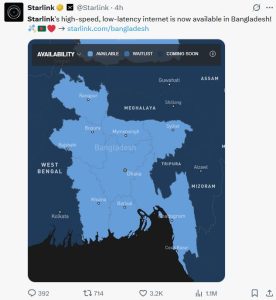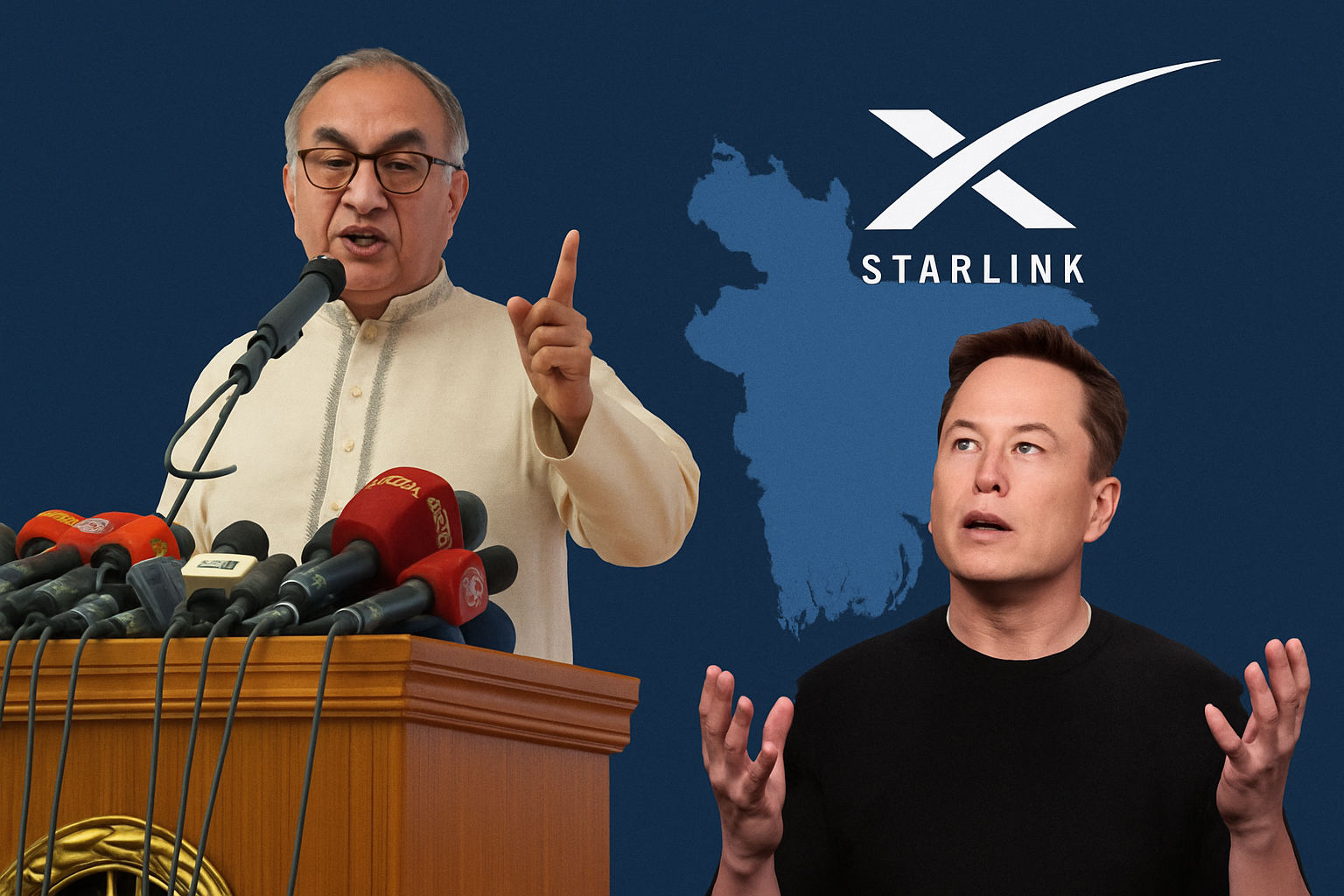“When you wrestle with shadows, your body ends up bruised.”
This age-old Bengali saying seems a fitting metaphor for the state of political discourse in Bangladesh today—where logic gives way to suspicion, and rhetoric fuels paranoia more than it offers clarity.
When technology is filtered through political lenses, it is not innovation we see, but intrusion.
Satellite internet becomes synonymous with surveillance; free-flowing information morphs into foreign conspiracy.
While such fears might seem absurd in a 21st-century cyber-connected world, Bangladesh has, historically, flirted with this brand of techno-suspicion.

On Wednesday, at a “Youth Gathering” rally titled in Dhaka’s Nayapaltan, Mirza Abbas, a senior member of the BNP’s standing committee, declared: We managed without Starlink. We managed without Wi-Fi. The country was fine. Who is Starlink really for? It’s for the Arakan Army. The corridor is for them, for transporting their goods. And Saint Martin’s Island? That’s being handed over to foreigners!
Is Mr Abbas implying that a global satellite internet constellation—devised by one of the world’s most influential tech entrepreneurs—will now become a supply line for a separatist rebel group across the border?
Of course, the Arakan Army, cross-border corridors, and Saint Martin’s Island carry genuine geopolitical and military weight. But dragging Starlink into that vortex is not only unfounded—it is dangerously self-defeating.
His remarks aren’t mere political theatrics; they reflect a deep-seated fear of technology—a fear rooted in uncertainty about the future.
The question is: are we still trapped in a 1995-era mindset, even as the rest of the world moves in fourth-dimensional parallel digital realms?

In the 1990s, one of the reasons the then-BNP government refused to connect Bangladesh to the free international submarine cable network was the belief that doing so would expose national secrets to foreign espionage.
That decision set Bangladesh back nearly a decade in digital connectivity. Later, the country was forced to connect to the submarine network at significant cost.
Technological ignorance back then cost Bangladesh dearly. Ghosts, they say, walk backwards.
Will we now walk forward, learning from the past—or borrow the ghosts’ footsteps and regress?
Starlink’s entry into Bangladesh began long ago, but was stalled under the Hasina government due to bureaucratic inertia and alleged behind-the-scenes profiteering. Following the July transition of power, the interim government approved Starlink’s operation—perhaps for the first time, an international tech giant has entered Bangladesh without kickbacks or commission schemes, under a transparent process.

So why now conflate a satellite internet system with arms smuggling and national subversion?
Notably, these fears of espionage and foreign influence aren’t voiced by national security experts—but by a veteran politician.
And they come at a time when, during the same “Youth Gathering,” acting BNP’s acting chairperson Tarique Rahman addressed supporters via video from London. His message travelled across five seas—the North Atlantic, Red, Arabian, Indian and Bay of Bengal—covering nearly 5,000 miles in an instant, guiding party strategy and calling for national elections by December.
Such contradictions aren’t merely political convenience—they reveal a deeper intellectual stagnation. This is not about access or ideology. It’s about a mindset where technology itself becomes a threat, and political language spins illusions from shadows.
The world is moving towards grasping information technology in the palm of its hand. Any country that refuses to embrace advanced satellite systems like Starlink risks not only being cut off from free information flows—but from the future of politics, economics, and education itself.
Starlink isn’t just fast internet. It means telemedicine in remote regions, online education in rural villages, and limitless horizons for young entrepreneurs.
So let the message be loud and clear: blocking Starlink in Bangladesh doesn’t just halt a technology—it halts our progress. We risk repeating the historic blunder of 1995, and this time, the cost will be even greater.


